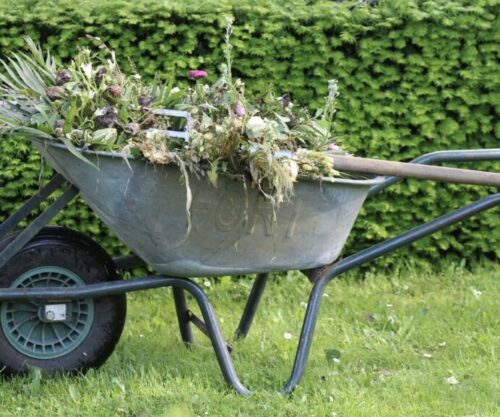
“But it’s 50% off if I buy now!” the little voice in your head cries as you pass the make-up counter at the pharmacy. No, you tell yourself. Enough, you tell yourself. And before you know it, you’re trying on a shade of pink lippy that would make Nicki Minaj blush and makes you look like a clown that has escaped from the circus.
It’s hard to resist a good bargain, isn’t it? Some of us consider it a challenge, a thrilling chase to save money while others love the practice because it gives us access to a variety of new things for less. But are these deals really about us paying less, or giving us the FEELING that we’re paying less?
Well, most discounting takes the form of “price anchoring” which is a technique that marketers use to create a baseline sense of value in your mind and essentially leaves you FEELING like you’ve gotten a bargain. Imagine you’re in the shops and you see a state-of-the-art TV for R60k – which is expensive. You start thinking that spending R20k on a TV isn’t that bad – a bargain in fact – when compared to the anchor price of R60k. It’s the old saying, how do you get someone to buy a R2000 watch? Put a R10 000 price next to it. How often have we heard, “well, it’s usually R150 but for you, today, I can make it R100 special” when the item isn’t worth R50?
There are a lot of little tricks like this that retailers use to make us feel like we’re getting a bargain – whether it’s real or not. The reality is that no shop is just going to give stuff away or intentionally hurt their bottom line – they’re not charities. So here are a couple of tips you should consider when next you’re on the hunt.
Ask yourself, do you really need it?
A bargain is a fabulous thing. But start by asking yourself whether you really need the item. If it’s a shade of pink you’ll never wear or two sizes too small, will the utility of the item outweigh the cost? What’s the point of buying something you’re never going to wear or use even if it’s cheap?
Compare – don’t get blinded by the deal
Many retailers use inflated price anchoring to create a value point – so do your homework and make sure that the price job is actually meaningful. So many of us get so enamoured with the discount that we actually forget to check if it’s “real”. You might actually end up spending close to the full retail price on items that have been discounted in contrast with an inflated anchor price. For example, if washing power was R100 p/kg and now has been dropped to R72 p/g – it sounds like a great deal right. But who sells washing powder for R100 p/kg? A bit of homework might reveal that the price-drop has been exaggerated by using an inflated anchor price and that everyone else is also selling their washing powder for R72 p/kg.
Got a big purchase? Phone a friend!
If you’re buying a big-ticket item like a washing machine or a car, it’s always best to get someone-in-the-know to give you some advice on what types of deals to look out for. A friend was looking to buy a new mobile phone and was advised by a cell phone-fundi-buddy to go to the factory store instead. There he picked up an almost brand-new phone for a fraction of the price. If he’d gone straight into the retail store, he would have spent twice the amount of money on essentially the same thing. It’s not what you know but WHO you know when it comes to making sense of high-cost items that may leave you happy or hurting.
Coupons and vouchers – savvy spending
Gone are the days of clipping newspaper food coupons on a Sunday while you watch Isidingo reruns with inky fingers. Technology has made it so easy to carry discount coupons on your phone that smart shopping is now accessible to even the laziest consumer. Make a daily habit of checking into deals websites or apps like WUHU.co.za to get access to downloadable coupons on goodies like household grocery items like cleaning products, tea, soups and soaps from trusted retailers like Checkers, Pick n Pay, Shoprite and Dischem.
BOGOF and bundling
BOGOF or buy-one-get-one-free type bargains are hard to resist – I mean – who doesn’t want 3 kg of cheese for R300? Cheese is expensive, right? Yes. It is expensive. But have you actually thought about what you’re going to do with 3kg of cheese? Where will you keep it? Won’t it spoil? Will you end up giving most of it away? Did you intend on spending R300 on cheese? Was it in your budget?
It’s easy to get blinded by the deal – it’s natural to feel as if you’ve struck the holy grail. And sometimes these deals do work – if you’re a household that goes through tissues and toilet paper at a rapid rate – a BOGOF deal is a win. But buying random stuff just for the sake of the saving isn’t. Then BOGOF must bogoff.
Have you got any tips on spotting a bargain? We’d love to hear them!




